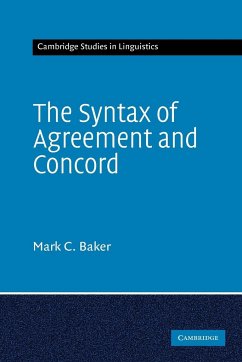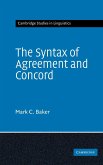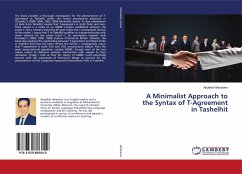'Agreement' is the grammatical phenomenon in which the form of one item, such as the noun 'horses', forces a second item in the sentence, such as the verb 'gallop', to appear in a particular form, i.e. 'gallop' must agree with 'horses' in number. Even though agreement phenomena are some of the most familiar and well-studied aspects of grammar, there are certain basic questions that have rarely been asked, let alone answered. This book develops a theory of the agreement processes found in language, and considers why verbs agree with subjects in person, adjectives agree in number and gender but not person, and nouns do not agree at all. Explaining these differences leads to a theory that can be applied to all parts of speech and to all languages.
Hinweis: Dieser Artikel kann nur an eine deutsche Lieferadresse ausgeliefert werden.
Hinweis: Dieser Artikel kann nur an eine deutsche Lieferadresse ausgeliefert werden.








